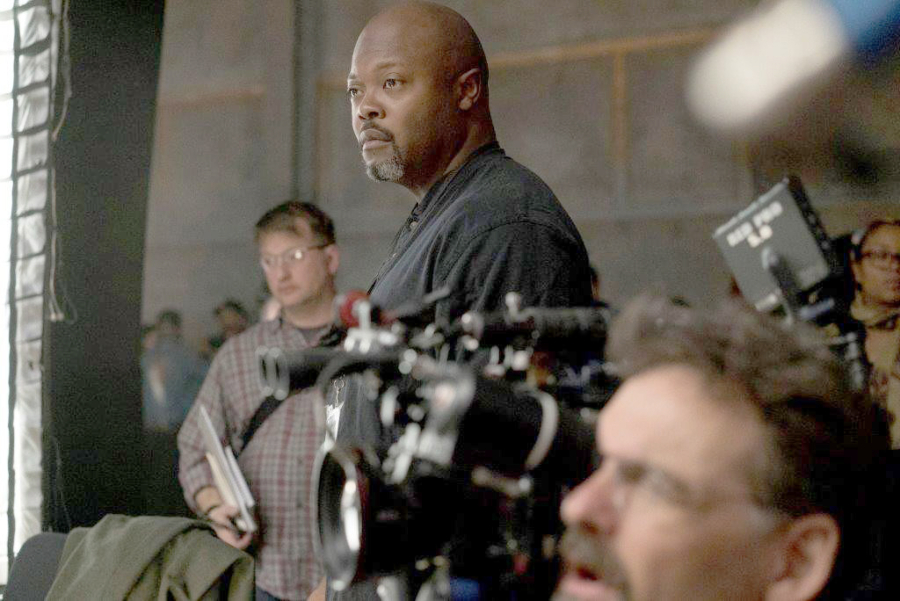As production on Netflix’s “Luke Cage” began, producer/writer Cheo Hodari Coker took the few spare moments he had to think of his grandfather, Bertram W. Wilson, who died in 2002 and is buried at Arlington National Cemetery.
“My grandfather was a Tuskegee Airman. He flew with the 100th Fighter Squadron. One of the first black fighter pilots,” Coker told The Washington Post. “The thing that he always said was, you can’t think about the opportunity in terms of the fear, it being historic, all the things that come ahead of it. You just (have to) fly the plane. Everything else, as long as you fly the plane, will take care of itself.”
His grandfather’s words guided him as he began the process of producing Marvel’s first TV show centered on a black superhero, now streaming on Netflix. Coker said he felt pressure to get “Luke Cage” right. But he focused on getting the job done — not making history.
If one thing put Coker at ease during production it was that he didn’t have to go out and find a star. Actor Mike Colter made his debut as Luke Cage during the first season of Netflix’s second streaming superhero offering, “Jessica Jones” in 2015.
“I think (Mike Colter) is one of the best pieces of casting since Sean Connery was cast as James Bond,” Coker said.
Colter plays the role of a reluctant hero in Harlem with superhuman strength, invulnerability and a few secrets.
Those scenes with invulnerability came up in production meetings midway through “Luke Cage’s” first season. A scene called for guards to open fire on Cage inside a boxing gym, and Jeph Loeb, a producer on “Luke Cage” who has written more than a few Marvel Comics, wondered whether it was necessary, because the show had already established that Cage was bulletproof. Coker answered that question the only way he knew how.
“I said ‘Jeph, I will never get tired of seeing a bulletproof black man,'” Coker said. “Like Dr. Martin Luther King, like Malcolm X, like Medgar Evers or even from hip-hop in terms of Tupac and the Notorious B.I.G., so many of our heroes aren’t bulletproof, so when you have a bulletproof hero, even if you’re not telling a political story, seeing a bulletproof black man in the world, has inherent politics.”
One situation that wasn’t debated was the use of the n-word, a first in Marvel’s live-action, mostly PG-13 world. Marvel’s Netflix shows don’t have hard R-rated content, but they can take things a little further than movies and network TV shows when it comes to adult language, violence and sex (all of which appear in “Luke Cage”). Coker says Marvel’s top brass trusted him when it came to using the word, which is used casually on the show, while some characters, including Cage, prefer the word not be used at all.
“It’s never used in a way where it’s flippant. I used it from the standpoint of, if we were going to eavesdrop on a conversation with African-American people, with nobody else around, when would this word be used and how would it get used,” Coker said.
Not lost on Coker is the symbolism of Luke Cage wearing a hoodie (to conceal his identity) while bullets bounce off of him.
“Of course you think of Trayvon,” Coker said, referring to Trayvon Martin, a black teenager fatally shot in Florida in 2012. “You put somebody in a hood, with a hoodie, it doesn’t mean he’s a hood. He could be a hero. I wish it was played out. I wish someone could say, ‘Hey a bulletproof black man, that’s so dated, because black guys aren’t getting killed anymore by cops for no reason.'”




